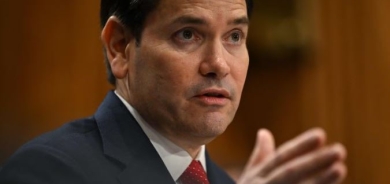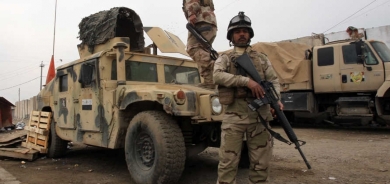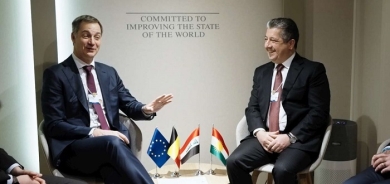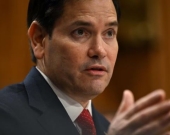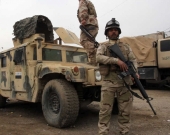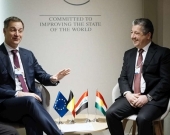Kurds in Sweden Rally for Independence

STOCKHOLM, Sweden – Waving the Kurdistan flag and celebrating with Kurdish music and dance, large crowds of Kurds took to the streets of the Swedish capital on Saturday to show their support for an independent Kurdish state.
In-between shouts of “Biji Kurdistan” (Long Live Kurdistan), children and adults from all four corners of Kurdistan stood by the dream of an independent state of their own, which appears nearer than ever for Iraqi Kurds after announced plans for an independence referendum.
“My hope is for independence and freedom for all Kurdish people,” said Gino, an Iranian Kurd from Bokan who settled in Sweden more than a decade ago. “I also think that in the future Kurdistan will be a place where many other small ethnic and religious minorities will be able to live in peace.”
The recent takeover of large parts of Iraq by the Islamic State (IS) and the quick collapse of the Iraqi army gave the Kurds an opportunity to move into Kirkuk and other territories they consider their own.
They are now defending the new lands with their Peshmerga forces. The events have united Kurds around the world, fuelling their push for independence.
“What’s going on in Iraq and Iraqi Kurdistan is good for us because the media are giving more attention to the Kurdish cause,” said Gino.
He added that if Kurdistan becomes independent he would go and live there. For him any part of Kurdistan is home: “There is only one Kurdistan.”
Shene, 21, a Kurd born in Sweden who has lived here her entire life, said she was at the rally to show support.
With her eyes on the recent events in Kurdistan and Iraq, Shene also said the demonstration was a show of unity among all Kurds living in Sweden.
“We are one,” she said, “and I think it’s about time. We’ve been fighting for such a long time for independence.”
Her parents moved to Sweden from Sulaimani 25 years ago, but her father was martyred in 1995, a fact of which she is proud.
She said she wants to work in politics, and plans to move to Kurdistan after completing her university education in international relations.
Independence for the Kurdistan Region has been officially opposed by the United States as well as by neighboring Iran and Turkey. But the biggest challenge to an independent Kurdish state could come from within, from the central government in Baghdad.
In spite of the opposition Pshtiwan, who immigrated to Sweden from Kermanshah in Iran 25 years ago, said that Kurds are seeking the support of the international community in their quest for statehood.
“I think the changes that have been taking place are in the Kurds’ favor, as our occupiers are busy with different conflicts,” he said.
Though Pshtiwan is not ready to return to Kurdistan just yet, noting that at this point in time he would not be able to continue working in his field, he thinks many people would move back to their homeland should an independent Kurdistan become a reality.
“For me, it’s more important that Kurds can return to our homeland so that our history, culture and language can be preserved and kept alive. Having our own state will strengthen the Kurdish identity worldwide, as we’ll no longer have to identify with our occupiers,” he said.
In the crowd, ex-Peshmerga Jawid Majnon stood out with his Israeli flag, which he proudly displayed despite the assault last week on Ismail Aryan Babak, a Swedish-Kurd from northern Iraq who was attacked in the city of Malmo for hanging an Israeli flag from his kitchen window.
“We thought they were our enemies because they gave weapons to our enemies, but the Israelis were the first state to formally speak out in support of Kurdish statehood and that’s why I’m carrying this flag,” Majnon explained.
Only recently has Sweden become home to Majnon, who was born in Rabat, a small village near Sardasht, and spent the last 12 years in the mountains fighting against the Iranian army.
He described the collective feeling of Kurds as something that was not present 10 years ago.
“Today, we are fighting for independence. I think the horizon is clear and Kurdistan is about to be united,” Majnon said. “Kurds from all areas of Kurdistan have come together. We weren’t united before, which was our weakness, and they could divide us. But now we are united; now we are strong.”
Rudaw


